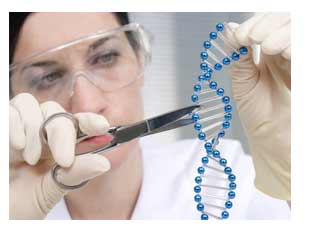The ability to engineer life is going to spark a revolution that will dwarf the industrial and digital revolutions, says Juan Enriquez,, a writer, investor, and managing director of Excel Venture Management. Thanks to new genomics technologies, scientists have not only been able to read organisms' genomes faster than ever before, they can also write increasingly complex changes into those genomes, creating organisms with new capabilities.
Enriquez, who spoke at Technology Review's EmTech conference on Tuesday, says our newfound ability to write the code of life will profoundly change the world as we know it. Because we can engineer our environment and ourselves, humanity is moving beyond the constraints of Darwinian evolution. The result, he says, may be an entirely new species.
Technology Review senior editor Emily Singer spoke with Enriquez after his talk.
TR: Why do you think there is going to be a new human species?
Juan Enriquez: The new human species is one that begins to engineer the evolution of viruses, plants, animals, and itself. As we do that, Darwin's rules get significantly bent, and sometimes even broken. By taking direct and deliberate control over our evolution, we are living in a world where we are modifying stuff according to our desires.
How is this impending revolution going to shape the world?
People think this technology will just change pharma or biotech, but it's much bigger than that. For example, it's already changing the chemical industry. Forty percent of Dupont's earnings today come from the life sciences. It's going to change everything; it will change countries, who's rich and who's poor. It's going to create new ethics.







